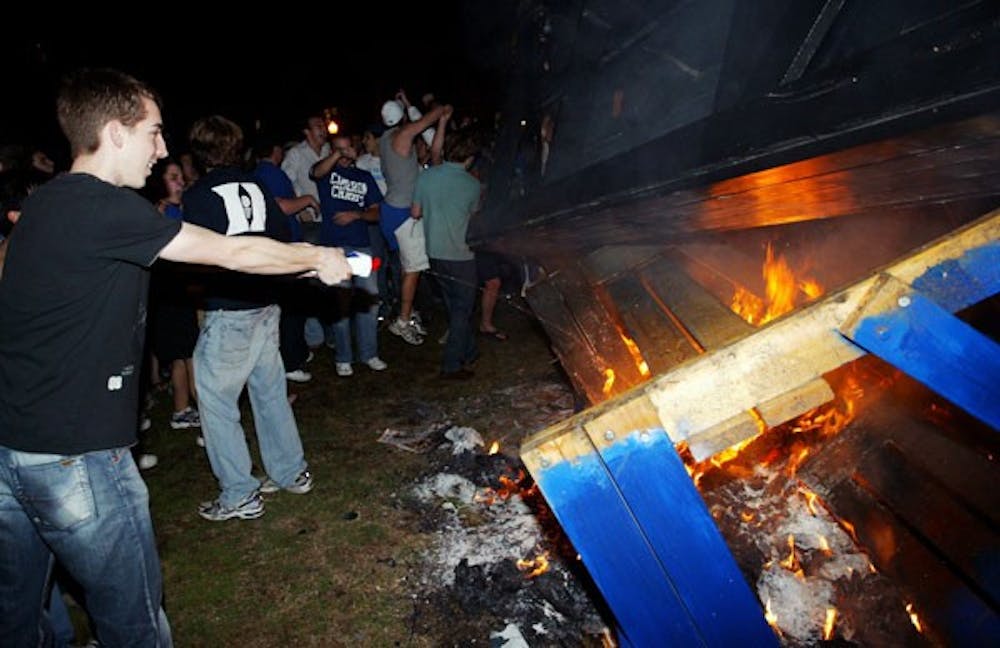UNC isn’t the only school concerned about the safety of its post-game celebrations.
Duke and N.C. State universities have enacted policies that dictate when students can and cannot have bonfires before and after major sporting events.
NCSU officials have had a zero-tolerance policy on bonfires during campouts before major sporting events since a firefighter was injured prior to a basketball game against UNC in 2000, said Thomas Stafford, vice chancellor for student affairs at NCSU.
“Students had been drinking and were throwing stuff at the fire marshals,” Stafford said. “One fireman got hit and injured.”
Jimmy Ryals, a 2003 NCSU graduate, said campouts sometimes got out of hand.
“Campouts usually started Friday night and ended early Sunday morning. Toward the end of the weekend, things often got out of control. There was a lot of drinking,” Ryals said.
The university has always required the bonfires during victory celebrations to be supervised by fire officials, but the incident prompted the university to ban campouts altogether in 2001, Stafford said.
When they resumed, bonfires and alcohol were prohibited.
“Campouts have gone very well since then,” Stafford said. “We’ve had no problems.”
Duke intensifies regulations
Duke officials work with the local fire department, requiring students to obtain a permit for celebratory bonfires.
Sue Wasiolek, dean of students at Duke, said permits are granted to students only after they have gone through extensive planning with the fire marshal’s office.
“We have to submit a very detailed plan on how the bonfires will be managed and conducted, and we only get the permit if the weather permits,” Wasiolek said.
Prior to one of the games against UNC last year, students were told there would be no bonfires because they did not attain a permit in time, sophomore Jonathan Palgon said.
Students also have to follow an extensive list of rules while the bonfires are burning. They are allotted two hours of “fuel” time when they can add safe flammable objects such as firewood, Wasiolek said, as well as an hour of “burning” time.
After that, safety officials extinguish the fire. Only one is allowed and it must be away from buildings.
A specific group of staff surrounds the fire to make sure that unsafe objects aren’t thrown in and that students don’t get too close, she said.
“The students understand that if they don’t follow the rules, then the marshal won’t issue another permit,” Wasiolek said. “Having a fire can be a dangerous situation. It must be done in a safe way.”
Contact the State & National Editor at stntdesk@unc.edu.
Duke, N.C. State ahead in regulating bon?res

Other universities have dictated when students can and cannot have bonfires. Courtesy of Chase Olivieri for The Chronicler



